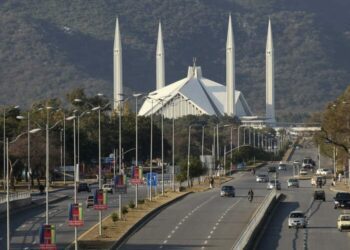The prime minister has claimed that the incumbent government returned loans worth $20 billion in the past two years. This may be correct but foreign debts have reached a record level during the PTI government’s tenure as it seeks new loans to repay older ones. This piles up a mountain of debt which Pakistan may never be able to repay.
The borrowing of loans from commercial banks increased during the past two years. During the eight months of the current fiscal year, Pakistan received $3.11 billion commercial loans out of $7.2 billion. We have already borrowed $1 billion from China which helped control the value of the dollar. Foreign commercial loans and deposits are around $4.1 billion which is fifty percent of the external debt. According to Economic Affairs Division, the external debt during fiscal year 2020-21 was $6.282 billion which is 51 percent of the annual budget which shows the government is highly reliant on foreign loans.
The federal cabinet has now approved an ordinance which will abolish income tax exemptions worth Rs140 billion given to various sectors. This comes as the IMF is set to resume the financial bailout programme. The government hurried passed the ordinance to receive the next trance of $500 million from the global financial institution. The government will also implement a mechanism for automatic electricity power tariffs increases whilst Rs150 billion surcharge will be imposed on power consumers to reign in circular debt.
It has been the policy of successive government to be highly reliance on borrowing from internal and external sources to cover their budget deficits. Developing countries are embroiled in foreign debt which hampers economic growth. Much of the money is use to repay interest and debt financing which aggravates the situation. This also increase the miseries of the common man who faces the biggest burden in form of taxes.
The government cannot claim to be improving the economy when it pilling up huge foreign debt. It has also failed to control food inflation while the prices of electricity have been steadily rising. The efforts to widen the tax base and generate more revenue are appreciated but it is imperative to support industries and consumers at this critical juncture rather than increasing power prices. If the economic situation has improved, the government must provide relief and take steps to improve economic growth.
























